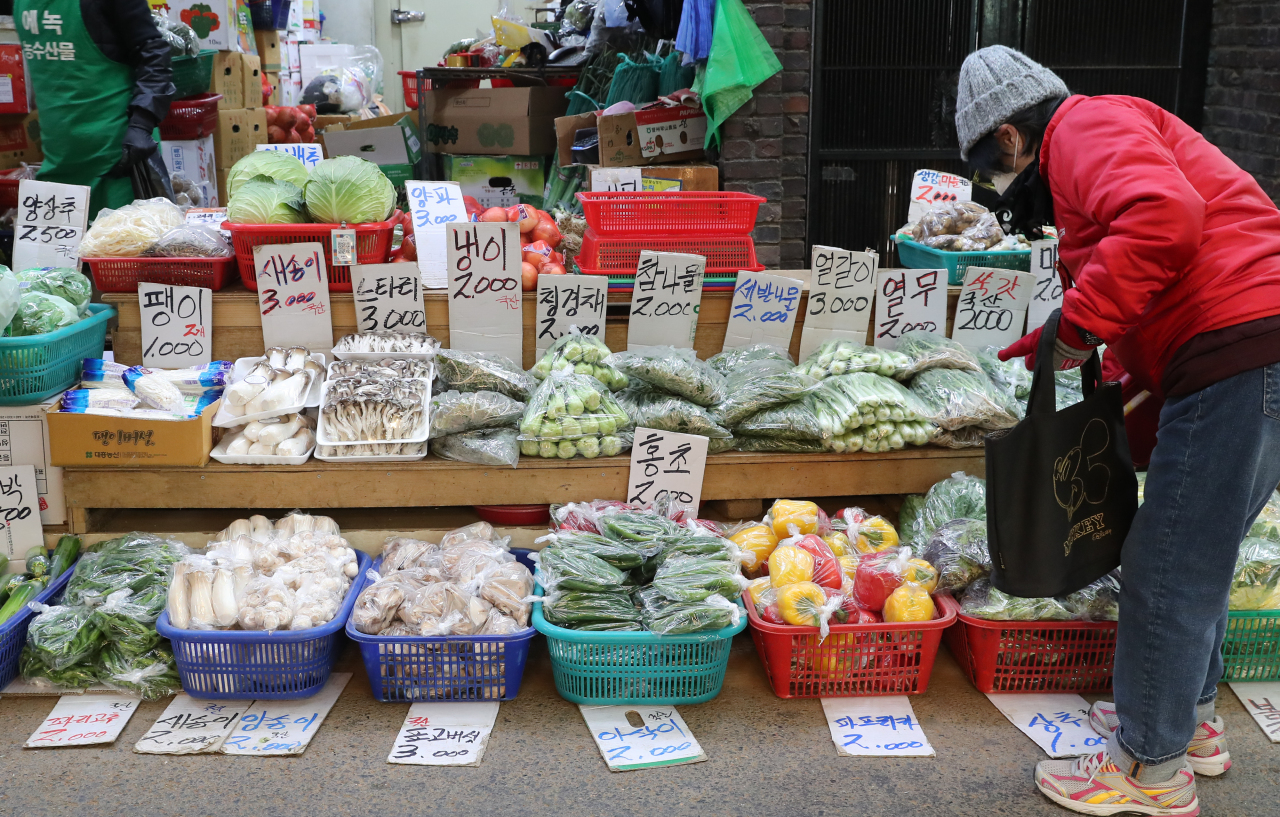 |
A woman shops for groceries at a traditional market in Seoul on Thursday. (Yonhap) |
Prices of groceries and nonalcoholic beverages in Korea rose 5 percent on-year in the July-September period, marking the fifth-largest increase among OECD nations, data showed Sunday.
According to data from Statistics Korea and the Organization for Economic Cooperation and Development, prices of food and beverages grew even higher last month on-year at 6.1 percent on the back of strong price increases of agricultural and processed products.
The quarterly price growth of food and beverages was higher than overall consumer prices, which rose 2.6 percent from the previous year. The growth in consumer prices was the highest quarterly jump in the past nine years, the statistics agency said.
While Korea’s consumer price increase was relatively stable, coming 23rd among OECD nations, signs of inflation were evident when narrowed down to only prices of foods and nonalcoholic beverages.
According to data from the OECD, Korea, along with Chile, came in fifth among 38 surveyed member nations in the rate of increase of food and drink prices in the third quarter.
Prices of such goods saw the steepest rise in Turkey, up 27.6 percent on-year. Trailing behind were Colombia, Australia and Mexico, up 11.2 percent, 10.6 percent and 8 percent, respectively, from the previous year.
By item, prices of eggs jumped the highest in Korea, increasing by 51.6 percent on-year. Prices of pear and apples rose by 45.2 percent and 34.6 percent, respectively.
Meat has also become more expensive -- pork by 12.4 percent, chicken by 7.9 percent, domestically raised beef by 7.7 percent and imported beef by 7.3 percent from the previous year.
Food and nonalcoholic beverage prices have been on an upward trend for seven consecutive quarters amid a rise in international oil prices, as temperature changes also push up prices of local agricultural goods.
The figures are ringing alarm bells for households, as they feel more sensitive to price changes in food and beverages than price hikes in other products and services.
As families begin to feel the pinch, officials will “mobilize all available means and policy capabilities” to stabilize consumer prices amid persistent uncertainties, such as the omicron variant and supply chain issues, authorities said during a meeting with top brass officials on Friday.
By Kang Jae-eun (
kang.jaeeun@heraldcorp.com)





![[Today’s K-pop] Blackpink’s Jennie, Lisa invited to Coachella as solo acts](http://res.heraldm.com/phpwas/restmb_idxmake.php?idx=644&simg=/content/image/2024/11/21/20241121050099_0.jpg)


